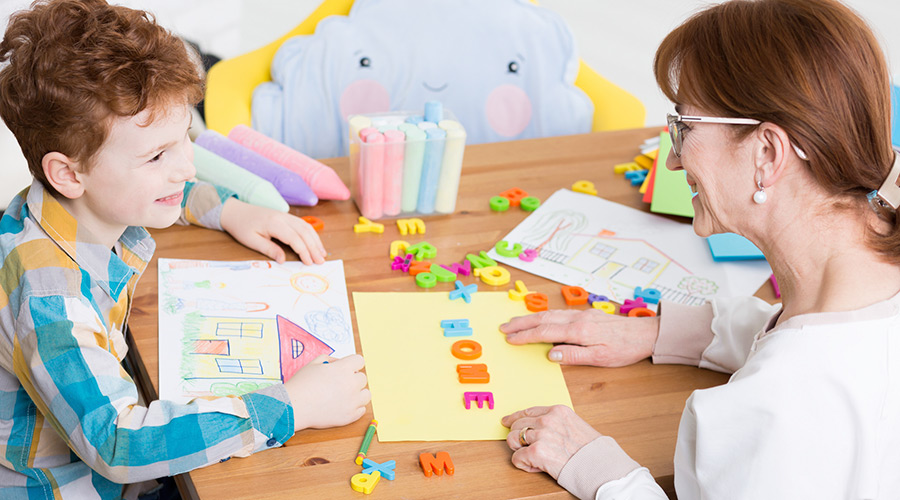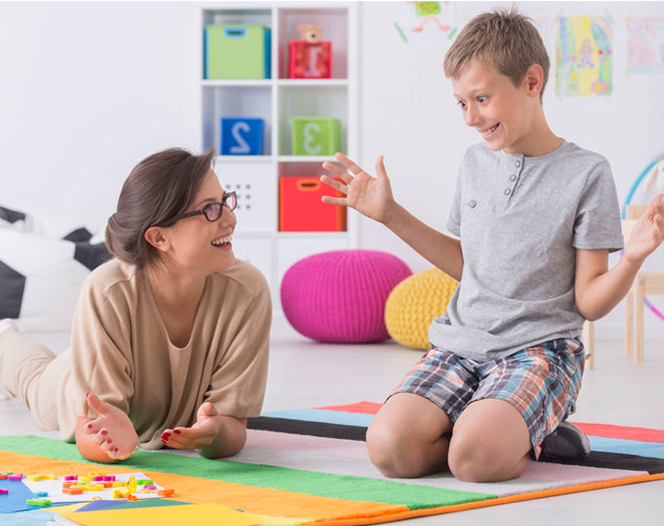What, Why, When, Where, How Occupational Therapy Can Impact your Child's Life
- Realisation Outreach

- Dec 2, 2019
- 4 min read
Updated: Jan 17, 2023
What?
Often times we hear the term "OT" or Occupational Therapy being mentioned by people and/or Health Professionals; but what exactly is it and how essentially OT could help my child?
OT helps children who struggle with their day to day tasks and activities. Occupational Therapy consists of exercises and activities to build and improve any sensory issues, motor skills, body awareness, balance and coordination difficulties that the child is facing which hinders the child's development as a whole.
Why?
Occupational Therapy is essential to help and improve a child's learning and growth process. A child who struggles from writing will need an OT's intervention to identify the root cause and come up with an intervention to address the problem. Similarly, when a child has difficulties controlling their emotions will require an OT's intervention to acquire skills to regulate emotions appropriately. The same applies to kids who have sensory processing disorder or any other developmental challenges.
When?
The earlier a child starts OT, the better it is. At a young age, a child embarks on a journey of endless learning and being able to do simple tasks can build up confidence and self-esteem which are crucial as it affects their growth vastly. Having a stable and solid foundation in their sensory system contributes to a more substantial development in their biological growth.
Where?
Parents may find Occupational Therapists in hospitals, government organisations or private therapy centres. It is crucial to not only engage kids with OT's at a young age but also at the right place to benefit the child in the best way possible. It is always important to ensure that the kid is in a safe and inclusive environment receiving therapy.
How?
Occupational Therapy help kids overcome certain difficulties they face in the growing and learning process such as:
1. Sensory Processing is when our nervous system receives information and turns them into responses. When a child has problem in sensory processing; their brain does not organise the information into proper responses and therefore becomes either overly sensitive or under responsive of everything around them.
They might also have problem regulating their emotions which will eventually become a social problem. OT's will identify the specific sensory system that the child is lacking of and come up with an intervention to improve any sensory processing disorder the child is facing as a settled sensory system is the foundation of academic learning.
2. Gross Motor Skills are strengths and movements which helps us move and coordinate our arms, legs and other body parts which involves our large muscles and when a child is lacking of this skill set; they will have difficulties coordinating both sides of their body, understanding the concept of left and right and have poor balance.
Their muscle tone could be low which ultimately affects their vestibular and proprioception systems to develop properly. An OT often work together with a physiotherapist to come up with series of exercises and activities to improve the child's muscle strengths as a whole. Click here to know more about physiotherapy.
3. Visual Processing is when a child is able to tell what he is looking at. It is a process where the brain interprets any visual cues or information. A child will not be able to recognise letters or find objects among objects without this skill. Besides that, a child will also find it hard to copy any shapes or letters or anything else from the board to a paper.
This will affect their academic learning process and hinders them from progressing in school. An OT will identify the cause of visual processing disorder in the child and address it with different activities to improve this skill.
4. Fine Motor Skills are movements of the fingers, lips, tongue and toes in everyday life. Lack of this skill will affect the child's ability to hold and grip a pencil properly which affects handwriting. A person with weak fingers also have trouble using scissors, zippers, buttons and shoelaces.
The child will not be able to draw, colour and trace properly too. An OT will assess and identify the child's weaknesses and develop a plan to improve the condition.
5. Social Interaction Skills are abilities to build a relationship and understand people around us. Kids with social problem finds it difficult to interact socially and engage with family members and peers. Generally, they do no adapt to new environment as quickly and have delayed language skills.
An OT will organise group plays and activities which involves interaction and cooperation from all the kids involved and stimulate the need to communicate between the kids to trigger the need to socially interact with one another.
6. Developmental Delay and Learning Challenges refers to kids who developed slower than their peers in milestones. They might also be unable to concentrate in school and are easily distracted. Kids could also find it difficult to follow instructions and completing their tasks.
They could have poor impulse control and have hyperactivity or low energy. An OT will identify the root cause of the problem, come up with a plan and address it with the cooperation of parents and teachers to provide a safe and effective solution to this matter.
7. Activities of Daily Living are day to day practice such as getting dressed, eating, showering, toileting, transferring from one place to another and continence. Kids will learn to do them every day from minimal assistance to being able to do them independently.
Some kids might find it hard to remember steps of doing ADL's and/or have no interest in doing it at all. An OT will come up with procedures and steps to make ADL's fun and interesting to learn which will stick with the kids throughout life as living skills.
All in all Occupational Therapy provides intervention and support for kids with special needs in various areas ensuring that they can learn, adapt and grow in the best way possible.























Comments